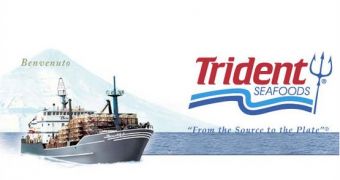In a move that is meant to set an example for all companies which do not comply with anti-pollution regulations, one of the world’s largest seafood processors is to pay a $2.5 million (€1.85 million) civil penalty and invest over $30 million (€22 million) in seafood processing waste controls to settle alleged violations of the Clean Water Act (CWA).
The U.S. Environmental Protection Agency (EPA) and the U.S. Department of Justice (DOJ) believe that these harsh penalties that are to be paid by Trident Seafoods Corp. will make significant improvements in how seafood processing is managed in Alaska.
The alleged violations include discharging without a necessary permit, exceeding discharge limits, failing to comply with permit restrictions on discharge locations (including discharges into at least two National Wildlife Refuges), creating oxygen-depleting “zones of deposit” or underwater piles of fish processing waste occupying more than the allowed one acre of seafloor.
The company operates over 20 onshore and offshore facilities located throughout Alaska, and the case in question involves no less than 15 of those facilities.
The millions of dollars will be used for source control and waste pile remediation measures. The source control measures include building a fishmeal plant in Naknek, Alaska, that will have the capacity to handle at least 30 million pounds of seafood processing waste annually, taking in both its own fish waste and potentially that of other local processors.
The actions taken will reduce Trident’s fish processing discharges by a total of more than 105 million pounds annually.
“This agreement will benefit the quality of Alaskan waters, which host a critical habitat for the seafood industry,” said Ignacia S. Moreno, assistant attorney general for the Justice Department’s Environment and Natural Resources Division.
“The upgrades will enable Trident to achieve and maintain compliance with the Clean Water Act, and will protect Alaskan waters, eliminate waste and create efficiencies that will serve as a model of best business practices for the seafood processing industry,” added Moreno.

 14 DAY TRIAL //
14 DAY TRIAL //